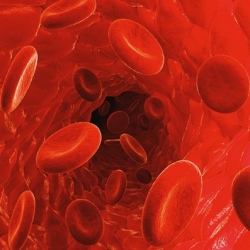
There is huge interest in gene editing with CRISPR, a technology that is only a few years old. Editas was founded by some of the most prominent inventors of the CRISPR editing system, including Feng Zhang, a researcher at the Broad Institute of Harvard and MIT.
“We’re here to make medicines,” Katrine Bosley, Editas’s CEO, declared in an interview at the company’s offices in Cambridge, Massachusetts. The new group of investors was led by Boris Nikolic, who was Bill Gates’s chief science and technology advisor at the Bill & Melinda Gates Foundation and is managing director of the investment company bng0. Editas confirmed that Gates was also among the new investors, as are several other wealthy individuals that the company declined to identify.
Editas, which had previously raised $43 million before this latest round, is one of several private biotechnology companies that have been amassing cash in order to create new types of treatments. Earlier this year, for instance, the biotechnology company Moderna Therapeutics raised $450 million. Juno Therapeutics, which is trying to treat cancers by genetically engineering T cells, a key part of the immune system, raised more than $300 million before going public this year.
CRISPR is particularly promising in making precise changes in cells. T cells taken from a patient could be edited and then infused back into a patient’s body, for example, an approach that Editas is developing through a partnership with Juno. Or cells could be fixed and put back in the blood of a patient with sickle-cell anemia.
Such treatments, however, are in their early days. Editas is not yet running clinical trials involving CRISPR-edited cells. “We don’t want to get out there so fast with patients when we’re not ready, we don’t have the programs yet,” said Bosley.
In addition to the use of T cells in treating blood cancers, a second major project Bosley will discuss involves treating a genetic retinal disease called LCA10 that causes blindness. A dysfunctional protein in the eye’s photoreceptors is to blame; Editas scientists have taken retinal cells out of patients with LCA10 and used CRISPR to give those cells proteins that function, in the lab, for now.
Editas is also working on sickle cell anemia. And, said Bosley, “there are some interesting viral diseases.” But she said Editas is not working on HIV, though its new investor Nikolic had been active in HIV-related investments while at the Gates Foundation.
